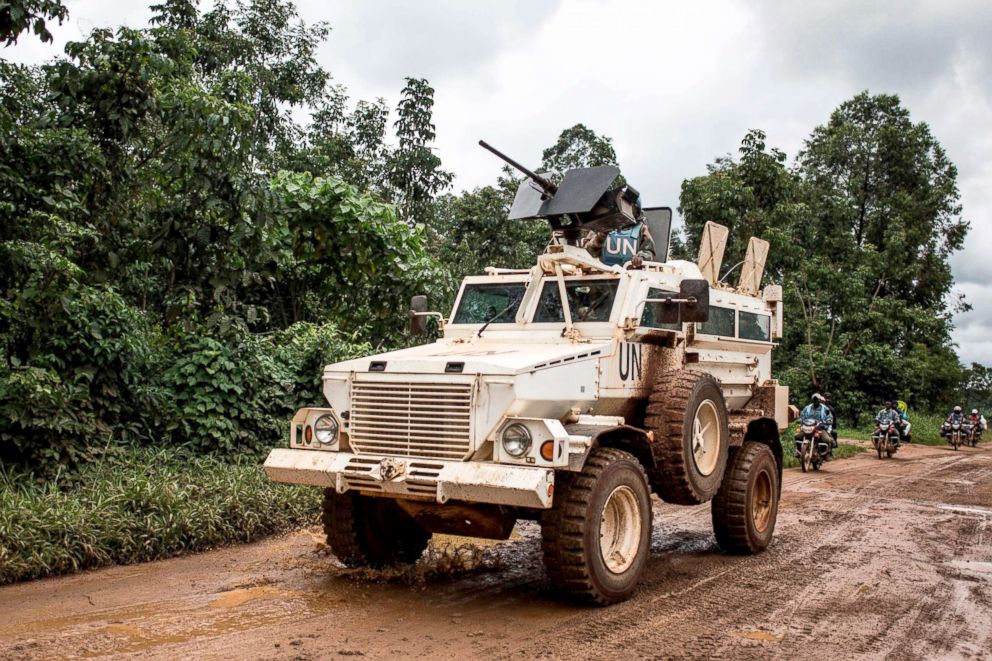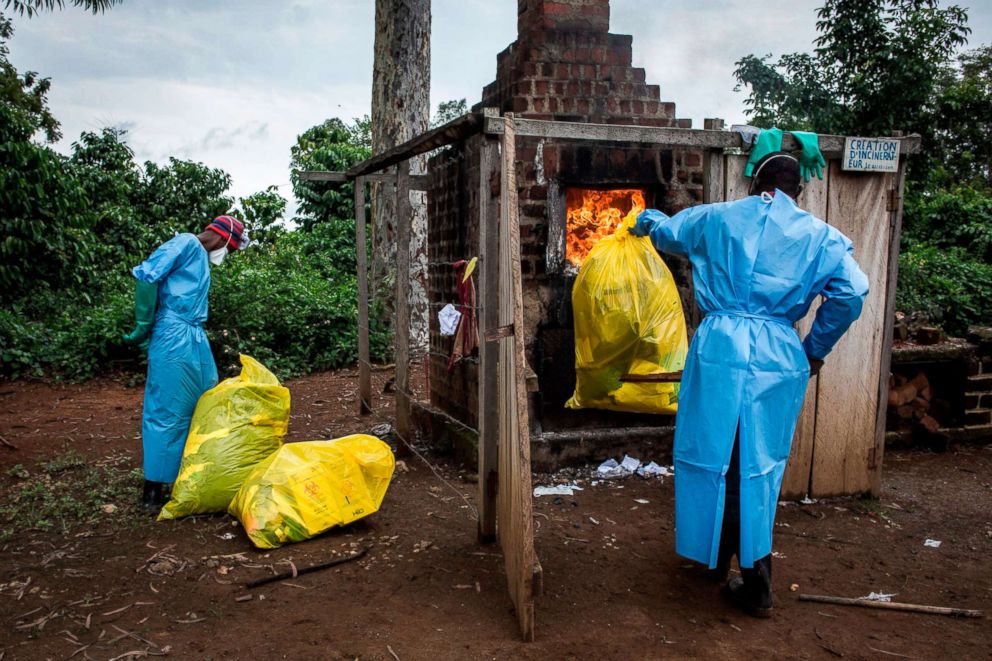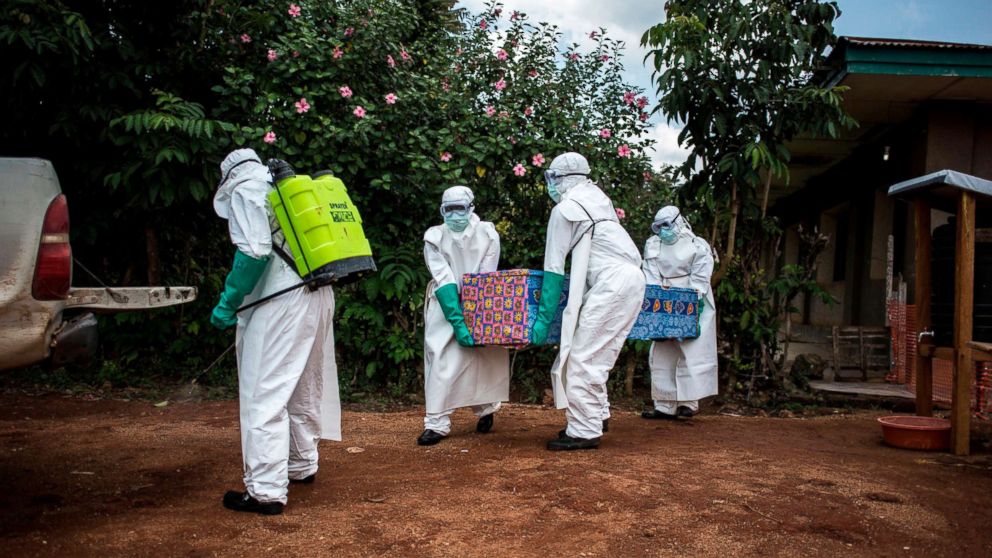Congo's latest Ebola outbreak could become 'worst ever' in East Africa, IRC warns
A fast-growing Ebola outbreak in the Democratic Republic of the Congo could become "the worst ever seen in East Africa," a humanitarian aid group warned Wednesday, after the deadly virus spread to an area surrounded by armed militants.
Since the latest outbreak was declared on Aug. 1, a total of 115 people have reported symptoms of hemorrhagic fever in the eastern provinces of North Kivu and Ituri, including 85 cases that tested positive for Ebola virus disease and 30 probable cases. There have been 77 deaths among those cases, including 47 people who died from confirmed cases of Ebola, according to the most recent data from the country's health ministry.
The World Health Organization's deputy director-general of emergency preparedness and response, Peter Salama, announced at a press conference Friday that a confirmed case was documented in Oicha, a city of North Kivu province encircled by territory belonging to Ugandan rebel group Allied Democratic Forces. WHO staff can travel freely within Oicha, which is not controlled by the militants, but the road into the city is deemed a "red zone" and requires an armed escort.
"It really was the problem we were anticipating and the problem at the same time we were dreading," Salama told reporters.

North Kivu and Ituri are among the most populous provinces in the DRC, and they share borders with Uganda and Rwanda. Those provinces are awash with conflict and insecurity, particularly in the mineral-rich borderlands where militia activity has surged in the past year, all of which complicates the response to the outbreak. Health workers are restricted by the government from entering some of the violence-torn areas.
An estimated 4.5 million people are displaced within the DRC, including more than 1 million in North Kivu alone, according to the most recent data from the United Nations. The vast majority of cases in the current Ebola outbreak have been reported in North Kivu.
As new infections were recorded in conflict-hit areas, the International Rescue Committee called for a "swift, concerted and efficient response" to avoid a repeat of the 2013-2016 Ebola outbreak in West Africa, which killed more than 11,000 people.
"If someone contracts Ebola in one of these areas, there is almost no way of knowing and, therefore, no way of cutting the chain of transmission. The news of two confirmed cases in Oicha is extremely distressing, because the area is almost entirely surrounded by armed militants," Michelle Gayer, senior director of emergency health at the International Rescue Committee, said in a statement Wednesday. "The international community should be learning from 2014, when the worst Ebola outbreak in modern history swept across West Africa. Without a swift, concerted and efficient response, this outbreak has the potential to be the worst ever seen in East Africa -- and risks being an encore of history we simply cannot afford."

The International Federation of Red Cross and Red Crescent Societies also voiced alarm, saying the response to the outbreak is being further complicated by the "triple threat" of conflict, community resistance and a rising number of cases.
"In addition to the increased death toll and the spread of disease to inaccessible areas, we are experiencing fear and anger in some communities against Red Cross teams who come to bury the deceased in accordance with safe and dignified burial protocols," Balla Conde, head of emergency operations at the International Federation of Red Cross and Red Crescent Societies, said in a statement Wednesday.
Ebola virus disease, a type of viral hemorrhagic fever, spreads through direct contact with the bodily fluids of infected people. Symptoms include fever, headache, fatigue, muscle pain, and as the disease worsens, it can cause vomiting, diarrhea, rash and bruising or bleeding without an injury. It is often fatal, and there is no cure for the virus.
The body of a person who died of Ebola remains highly infectious and must be handled properly during burial to protect families and communities.
"Local Red Cross volunteers are taking enormous risks to provide assistance and safe burials in the affected areas," Jacques Katshishi, Ebola operation coordinator for the the Red Cross of the Democratic Republic of the Congo, said in a statement Wednesday. "Safe access to these communities is crucial to stopping the spread of Ebola."




